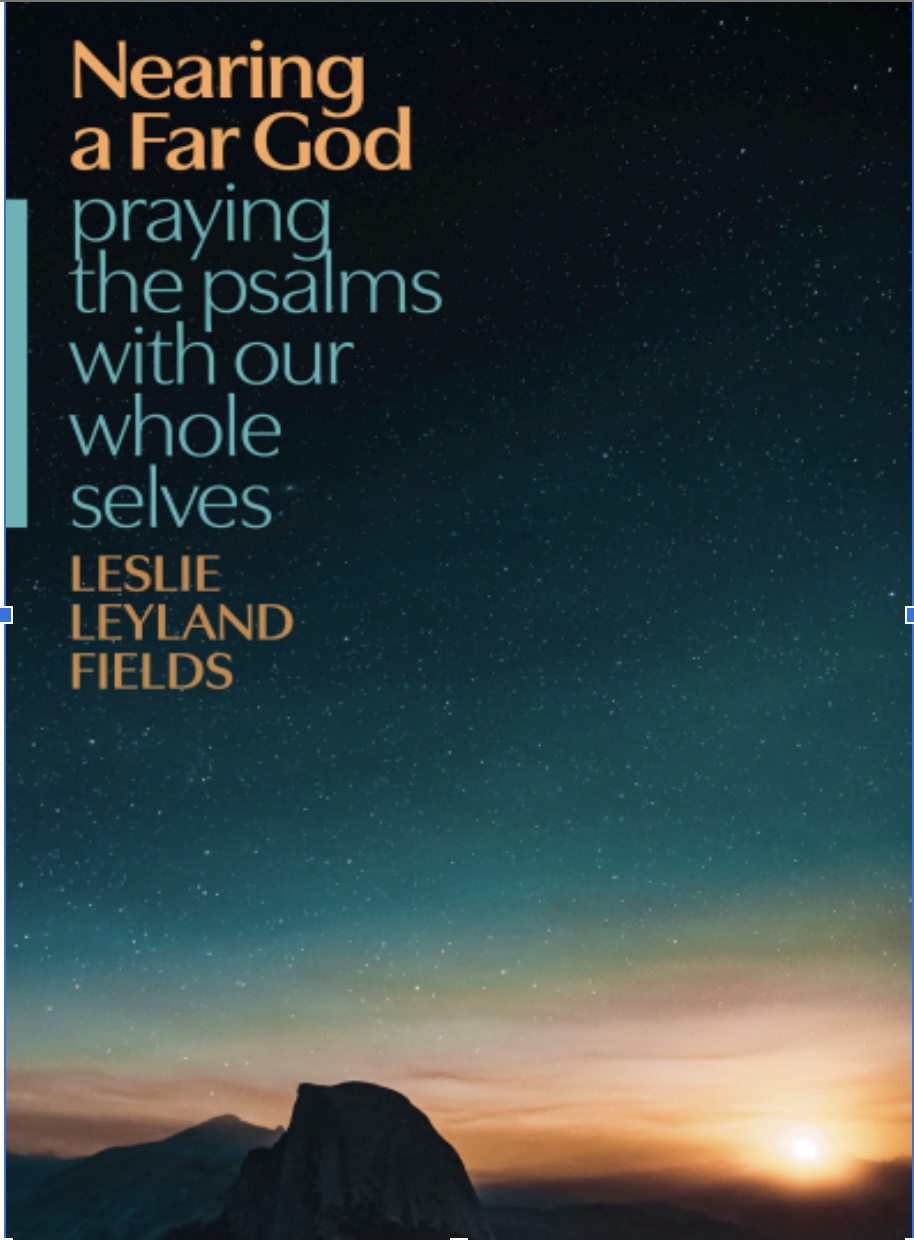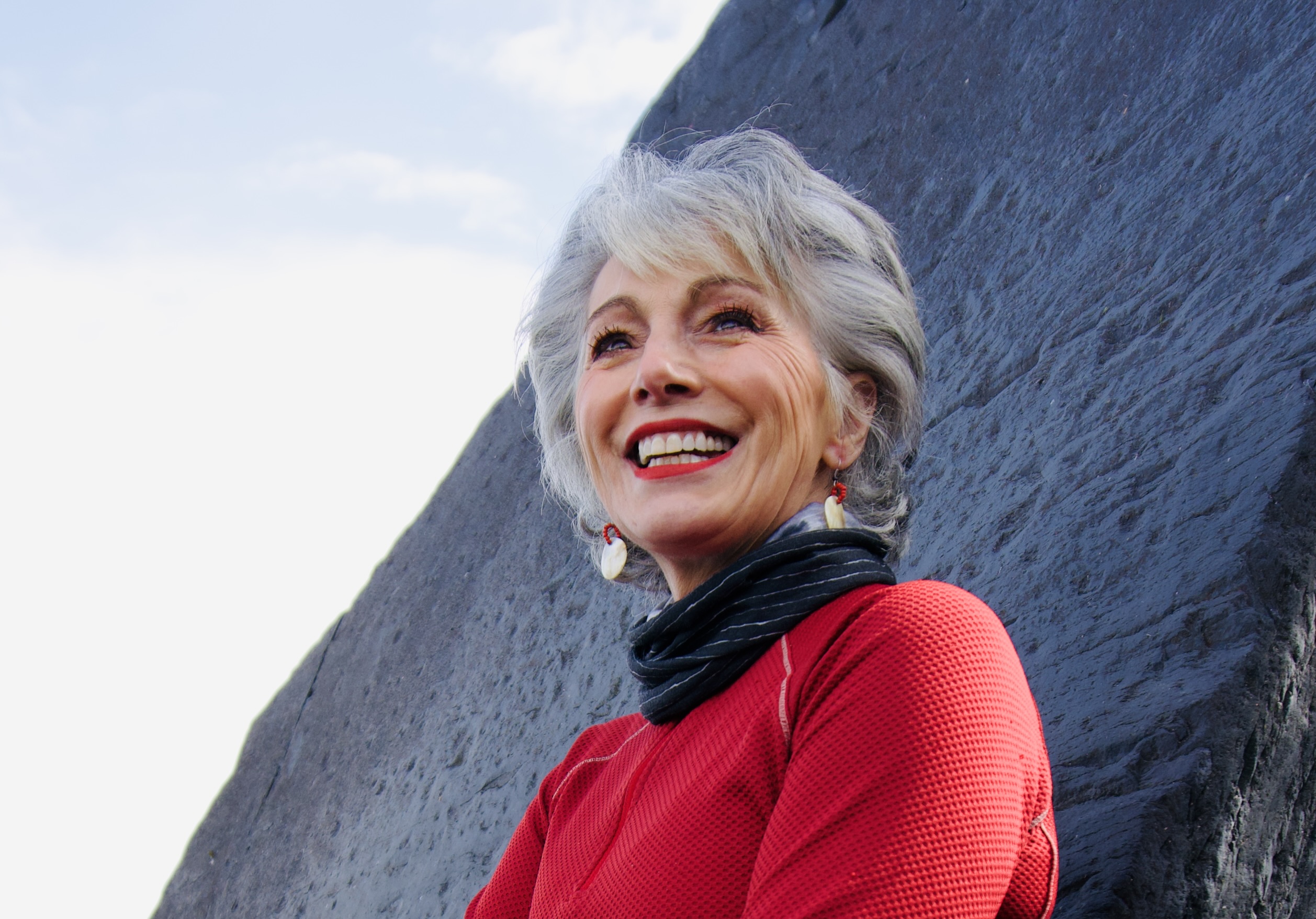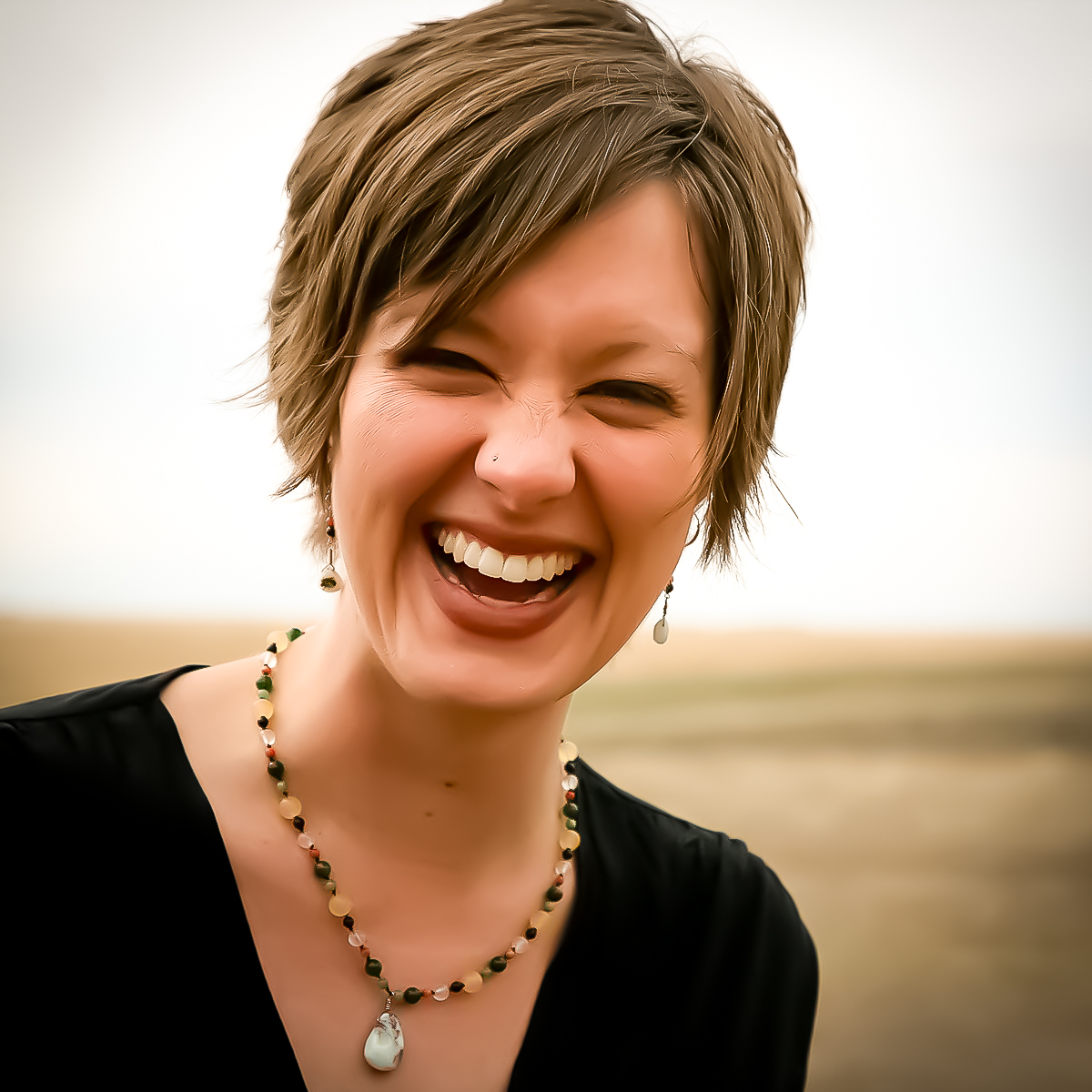Leslie Leyland Fields is the award-winning author of 14 books, as well as host of the Harvester Island Writer’s Workshop, mother of six adult children, and a commercial salmon fisherman near Kodiak, Alaska. She teaches an ongoing online Memoir Masterclass that encourages participants to write the stories from their lives. Here, she invites readers of Cultivating behind the scenes of her new book, sharing how writing and praying with the Psalms have helped her live with greater honesty, wholeness, and courage.

ACM: In March of this year, your book Nearing a Far God: Praying the Psalms with Our Whole Selves was released into the world. Would you tell us the story of how this book came to be? How has this journey with the Psalms changed how you know God? How has it changed how you “know” overall?
LLF: This book began twenty years ago on a wilderness island in Alaska, where I was hunkered down with my six kiddos for the umpteenth rainy day in a row. We were in the midst of an intense fishing season. (We’re a commercial salmon fishing family.) We were exhausted and quarreling. There’s no escape or distraction—it’s bush Alaska, so no roads, all that. In that isolation and sense of entrapment, God felt so far away. Then I remembered the Psalms and the desperate pitch of those prayers. I turned to them, page by page, landing in the laments. I was home! Here was language for all I felt.
But silently reading words on the page felt like watching cold water springing up at my feet. Watching isn’t enough; I needed to drink. I picked up a pen and a legal pad and began writing out the laments just as they were. Then I drank more: I wrote into the laments, amplifying the psalmist’s words with my own circumstances and emotions. When I was done, I spoke (maybe howled?) my lament to my Father, my voice joining David’s voice and the choir of voices through the ages. I had an immediate sense of being seen and heard in a new way. But more, I got my story into God’s and His into mine in a real, tangible way. This gave me so much hope. And yes, courage to face the next day.
ACM: It takes courage to admit that God feels far away and to recognize that God often doesn’t come to us the way we think God will. I love how, in your desperation, you caught the glimmer, picked up your pen, and began to wrestle within the context of the Psalms. The subtitle of your book is Praying The Psalms with Our Whole Selves. What do you mean, “our whole selves”? Why do you believe that it’s important to pray the Psalms like this, and how did you learn it?
LLF: When you get together with believers to grow and deepen your faith, what do you call that? “Bible Study,” right? I love “Bible Study” and all that goes with it: expository preaching, parsing out the Greek, diagramming sentences, consulting the best commentaries, and outlining passages. But no matter how much we love the sweetness of study and the pursuit of knowledge, we’re more than lollipops, heads on a stick. On Sinai, when God revealed Himself to Moses and His just-rescued people, He didn’t say, “KNOW the Lord your God with all your mind, your mind and your mind.” He said, “LOVE the Lord your God with all your heart and with all your soul and with all your strength.” In other words, with our whole selves.
The Psalms show us what whole-self worship looks and sounds like: it’s messy, emotional, rational, and physical. It’s so very beautifully and fully human.
But we’re still living with the fruit of the Enlightenment that prized the intellect over the rest of our (human) being. Neuroscience is beginning to change this, revealing astonishing levels of integration between our synapses, muscles, emotions, memories, reason, and relationships. Science is still just uncovering the uncountable ways that we’re “fearfully and wonderfully” made. But the Psalms have been there all along.
ACM: It’s a deep comfort to find an ancient invitation to wholeness that is being rediscovered and affirmed by neuroscientists. However, Christians through history have had a fraught relationship with the body. In your book, you argue that our bodies are a necessary part of learning to pray with the Psalms. Why do our bodies matter? How did you come to this conclusion?
LLF: For a long time, I was like many other Jesus-followers, especially women followers: I saw my own body as an enemy to be vanquished. But I live in a wondrously wild place, where every day I watch sea otters, sea lions, scoters, bald eagles, whales, and puffins at play in the seas of the Lord. I watch how Yahweh Jireh lovingly tends them, providing food and shelter for each of them.
Like us, they don’t simply have bodies; they are bodies. The Psalms, too, have led me here. They’re full of action: walking, mourning, dancing, weeping, crying, shouting, bowing—all physical expressions of worship. And the metaphors! The Psalms are bursting with metaphors, where God names and describes Himself through the bodies and things of this world: He’s our shepherd, shield, bread, wine, water, rock, and light. These are more than heavenly signposts; they show us that all of matter matters because God said and made it so. And can my body matter any less?
ACM: Inviting our bodies to participate in worship and prayer is more familiar for some than others. You say in your introduction, “The Psalms cannot rewrite us if we rewrite the Psalms.” Has it taken courage for you to be rewritten by the Psalms? What would you say to someone who believes it might be blasphemous to enter the Psalms in the way your book invites us to do?
LLF: You’re right—it did take courage to begin this full immersion into the Psalms. It feels scary and risky to expose ourselves in our moments of greatest need and vulnerability. I learned in my childhood that even when I was devastated and desperate, parents could not help (would not help). So then, how could I dare to believe another parent will?
Turning to the God of the Psalms means turning away from all the cunning survival strategies I’ve perfected over the years. It takes courage to release my death-grip on those.
It takes courage to believe that God has a better way to resolve the trouble and darkness I’m struggling with.
It takes faith to believe that these poems directed heavenward to an invisible God can turn lament into praise. I don’t always have enough faith, but I do it anyway. Through His Word, God does the rest.
I understand those who question my approach to entering the Psalms. The last thing I want to do is create another means of twisting Scripture into our own image or turning it into a therapy manual. Interestingly, though, we make up spontaneous prayers all the time and think nothing of it, despite the reality that many of those prayers may be theologically questionable! This is a much more considered approach to prayer that follows the pattern, movement, and theology of the Psalms. At the start, I set up some clear guardrails:
- that we seek first to understand the psalm in its historical and theological context;
- that we stay within the central subject and intent of the psalm;
- that we preserve the theology of the psalm: Who God is, His character, His nature, His acts in history, His attributes; and
- that we’re not altering God’s Word; rather, we’re writing and embodying the Psalms to illustrate, witness, and respond to the truths of God’s Word. In a phrase, we are “singing a new song!”
That’s what David urged us to do. Five times in the Psalms he urges this. He continually “sang a new song” as well. He didn’t just write a single psalm of lament or a single psalm of praise or thanksgiving. He wrote many. Whenever his heart was moved by a particular event, he kept writing new songs. (And the 73 psalms that we have in our Bibles are likely only a fraction of what he wrote.) His words of confession, praise, and lament are not meant to steal or replace our own cries but inspire our own as well. We have to “sing a new song” because Yahweh is always at work in His world and our lives!
ACM: I know that when I am deep in lament, I find myself desperate to find a new song to sing. And how beautiful that these ancient songs can become a new song for those who are willing to come to them in a new way. Most of the lament Psalms shift, sometimes abruptly, to praise at the end. Have you personally experienced this movement from lament to praise?
LLF: I originally came to the Psalms in a time of lament, and I find myself back there again now. The losses are great. Will weeping really turn to dancing? Will mourning give way to praise? Is this real? Nobody wants to test this, but I can say along with so many of God’s people that yes, this is real. This is my experience even this morning as I sank into Psalm 4. We move from the anguish of, “Answer me when I call to You, my righteous God!” to the final verse: “In peace will I lie down and sleep, for You alone, Lord, make me dwell in safety.” How does this happen?
Lament builds a linguistic ladder between the reality of our experience in this broken world and the reality of Yahweh on His throne ready to hear and respond. Our prayer often does not “fix” our circumstances, but it fixes our eyes on Jesus. We’re no longer alone. Our story of grief is set within the grandest story of all: Yahweh reigns and His love endures forever!
ACM: The picture of lament as a linguistic ladder is a powerful one because it allows for my honesty about whatever mess I find myself in while relieving me of the responsibility of making sense of my suffering. It is so common to deny the deep groaning in our spirits and feel like our prayer needs to be neat and tidy, when what I most deeply long for is to not be alone as I suffer. How has entering the Psalms in this way given you courage? How might it take courage for someone to engage with the Psalms in this way? Why do you believe that it’s worth the steep climb?
LLF: Let me tell you what happened at our last Nearing God Retreat. Yes, some people were hesitant to get up off their chairs, move, and use their body as they prayed and sang and wrote into the Psalms. But following the Psalms, as they allowed their faith to permeate their whole being, they were freed to worship their Father in new and deeper ways. There was so much joy as we entered into the final Hallelujah Psalms on the last day that we broke out into a spontaneous dance, including a conga line, anchored by a dear 90-year-old woman who spent half her life as a missionary in Africa. (She missed the movement of her faith family in Africa, she said.)
We are not meant to just be observers or passive listeners or silent readers of Scripture. There are times for this, of course, but many of us have spent too many years in this kind of distant, disembodied faith. I’m thankful that the Psalms have awakened me into this holy whole-body worship and conversation with my Father Who longs for all of us to experience His presence with every breath. How can we turn away from such an invitation?
![]()
The featured images are courtesy of Leslie Leyland Fields and are used with her kind permission for Cultivating.
Amy Malskeit is a lover of words and stories and people. She holds an undergraduate degree in English and Spanish, a secondary English teaching credential, and an MA in creative writing with an emphasis in poetry from Lancaster University in Northwest England. Her years teaching middle and high school gave her a love for middle grade and young adult literature, and the awkward awesome that being a young adult means. She is a mother of two who plants her garden and makes her home in the foothills southwest of Denver with her best friend, Kevin. She loves the water, and feels most at home when she is near the Pacific Ocean. She reads broadly, and is passionate about exploring big questions and small moments through her poetry, essays, and stories.
Leave a Reply
A Field Guide to Cultivating ~ Essentials to Cultivating a Whole Life, Rooted in Christ, and Flourishing in Fellowship
Enjoy our gift to you as our Welcome to Cultivating! Discover the purpose of The Cultivating Project, and how you might find a "What, you too?" experience here with this fellowship of makers!


Add a comment
0 Comments